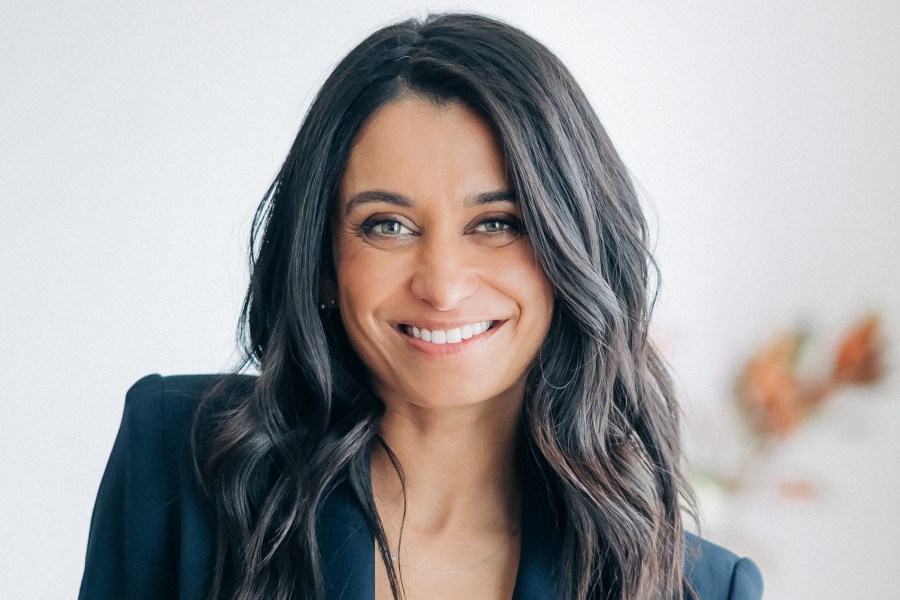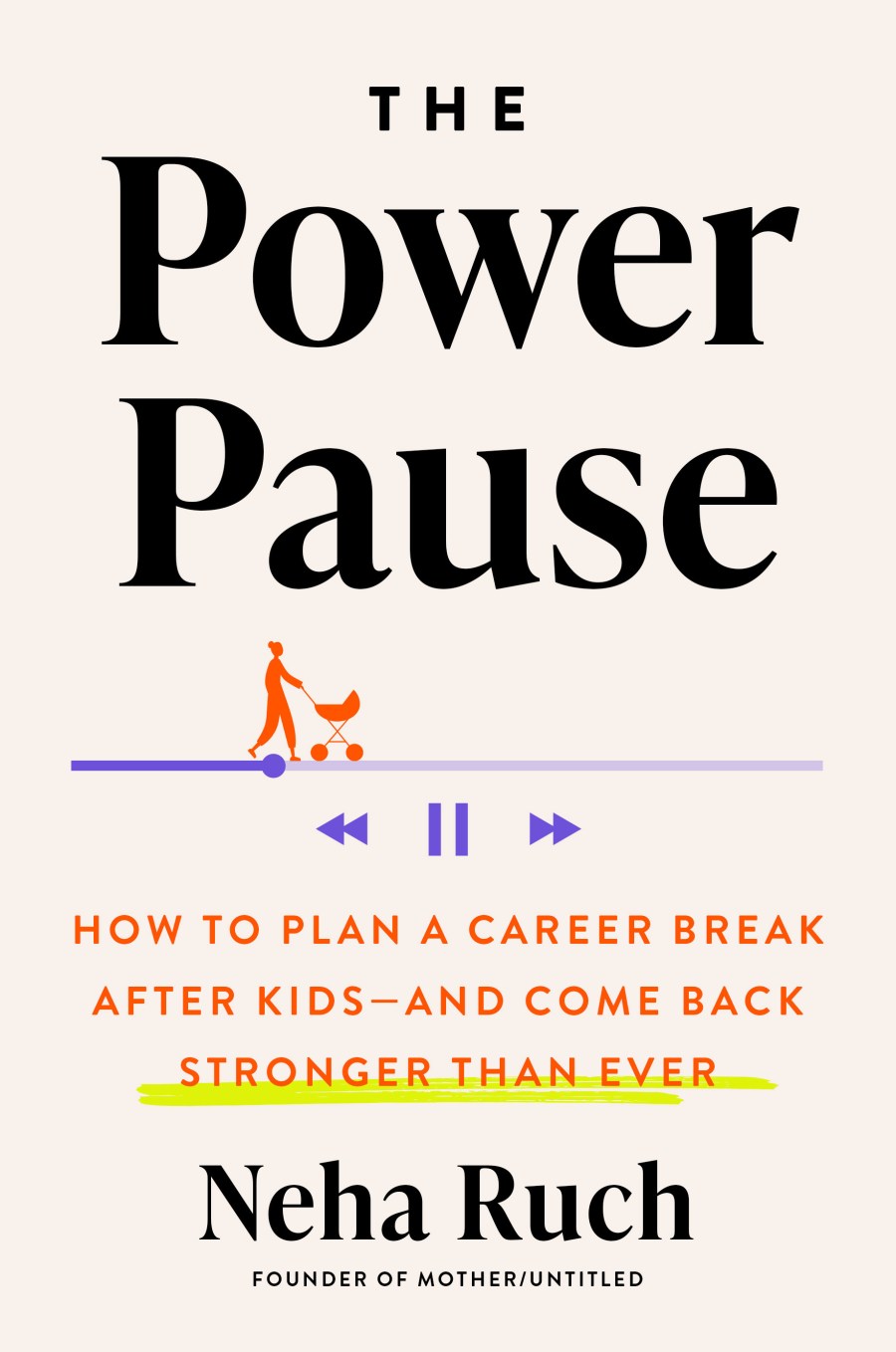When marketing executive Neha Ruch had her first child nine years ago — after earning an MBA from Stanford — she decided to downshift her work to part-time, then eventually left her paid job to focus on motherhood.

“I wanted more time with him and more room to discover this next version of myself,” she recently told Know Your Value. What she didn’t expect at the time were all the questions that came with it.
“I was immediately hit with, ‘What are you going to do all day?’ and ‘Do you feel like you’re giving up?” she recalled. “When I fully paused my paid work … people asked, ‘Why did you even go to business school?’. Meanwhile, I felt more confident than ever that I was growing in a new way, and it felt so at odds with how other people were perceiving my choice.”

That motivated Ruch to cultivate a community dedicated to eschewing the outdated stereotypes associated with stay-at-home motherhood. She eventually started Mother Untitled, an online platform that helps ambitious mothers take career breaks with confidence and without shame.
Today, her mission to rebrand stay-at-home motherhood has sparked a movement. According to the organization, one in three working moms are likely to leave their jobs for stay-at-home parenthood in the next two years, while more than 50 percent of working moms are likely to downshift their work.
Women need to stop apologizing for taking career breaks
Ruch has taken that research, as well as numerous interviews with ambitious parents in the Mother Untitled community, and has released her new book, “THE POWER PAUSE: How to Plan a Career Pause After Kids — and Come Back Stronger than Ever.”

The book is filled with diverse stories of stay-at-home mothers who buck every stereotype, as well as practical strategies for taking a career pause while expanding your network, unlocking personal growth, and charting a course for the long-term.
Ruch recently shared what she’s learned from her motherhood journey, writing her first book and the advice she would give all working mothers who are thinking about taking a career pause. Below is the conversation, which has been edited for brevity and clarity:
Know Your Value: What are the common misconceptions around stay-at-home motherhood? How can we lift the stigma associated with this loaded phrase?
Ruch: By sheer linguistics, stay-at-home motherhood (SAHM) implies a sense of being shut-in or stuck in one place. Mother Untitled surveyed the general population about their perception of the SAHM, and the image that still comes to mind for many is June Cleaver, an apron-clad archetype left over from the 1950s.
The modern mother taking a career pause or shift to make room for family is having kids older, at the average age of 30, meaning she’s accrued education and professional experience. She has a more equitable relationship with her partner — fathers in this generation spend three times as much time with their children than any previous generation.
She has access to digital tools and technologies to stay connected to personal and professional opportunities, networks, and possibilities. Her career pause is just one part of a very long game.
Know Your Value: What did you learn about yourself — and your professional ambitions — after taking a career pause in early motherhood?
Ruch: Like many women, I had always gleaned a lot of self-worth and identity from my career and my salary. Letting go of everyone else’s perception of me took getting clear on an identity that was bigger than a title. It meant focusing on those skills and accomplishments but could consist of much more about who I was.
Parting with society’s outward measures of ambition and success let me be bold enough to allow myself to learn and grow in new areas, like writing, community-building and research. For years, this was documenting big ideas on a little blog that eventually became Mother Untitled, and that was humbling because not everyone perceived it as “big” or “impressive”.
Planning a return-to-work? Don’t make this #1 mistake
Know Your Value: What skills do parents glean as caregivers that translates to better professional success?
Ruch: Parenting demands hard skills and soft skills, which is the ultimate leadership training ground. Looking at the books I’ve read over the last nine years, they span psychology, sociology, and economics, and 50 percent of them have to do with parenting.
$231.1 million dollars a year is spent on parenting books, and I say that to underscore the intellectual labor of parenting. Understanding the complexities of your unique child and family rhythms takes care, as well as straight-up thinking and study.
The day-to-day demands of time management, organization, and prioritization rivals any workforce, and figuring out how to translate big ideas to a toddler or a teenager made me more succinct and precise than any job prior!
But above all things, that time at home helped shape what I cared about and also the perspective of how I can hold my work alongside family life. I stepped back into the workforce doing work I care deeply about with a new clarity of what’s most important, and that’s a superpower in navigating the day-to-day.
Know Your Value: Tell us about Mother Untitled and the intention behind this platform. How did it start, and what lessons have other community members shared about caregiving and career mobility?
Ruch: When I had my first child, it was the height of the “Girl Boss” and “Lean-In” era that was tremendous for supporting women. However, as I made my choice to shift my career for family life, I felt it was casting undue shame on anyone choosing to pause — and that the stay-at-home mom had been left out of the conversation. I started Mother Untitled as a community to show a new collective of women who were modern, feminist, and ambitious, pausing and shifting to lean into the family for a chapter.
I’ve had the privilege of interviewing many women about the underrepresented reality of this stage of life. While getting their bearings in a culture that undervalues care can feel challenging, they all find ways to stay connected and creative.
I spoke to a mother in Brooklyn, New York, whose children had special needs, and it challenged her sense of what’s essential, but in connecting with a community for parents with special needs, she found her way to an auctioneer role that let her tap into her sense of play, where she worked in the evenings after bedtime.
I spoke with a former lawyer in Philadelphia who was using the time with her toddler to rediscover her love of reading and started interning at a bookstore to nurture a new dream. I spoke with a marketer in Arizona who got laid off but reclaimed her agency by choosing to use the time to pursue fractional work. That balance let her have more time with her three and five-year-olds.














